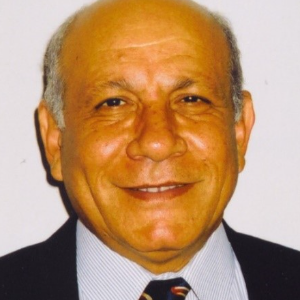Thermodynamics and Phase Behavior
The complicated interaction between physically distinct, separable sections of matter termed phases that are in contact with each other is described by phase behavior. Solids, liquids, and vapors are the most common phases. In many petroleum applications, phase behavior is critical. Thermodynamics is the study of energy and its changes, which is crucial to understanding phase behavior. We can follow the energy changes that occur during phase transitions and anticipate the result of a process using thermodynamics. The goal of phase-equilibrium thermodynamics is to find properties like temperature, pressure, and phase compositions that emerge once all potential for further change has disappeared.
- Compositional Simulation
- Enhanced Oil Recovery
- Environmental Cleanup
- Geochemical Behavior
- Geothermal Energy
- Multiphase Flow in Wellbores and Pipes
- Wellbore Stability
Committee Members

Anthony J Sadar
Environmental Science Communication, LLC, United States
Selim Sanad Shaker
Geopressure Analysis Services, United States
Sharma Dronamraju
AKD Professional Solutions Inc., United States GOPE 2026 Speakers

Ross Cygan Taylor
North Sea Transition Authority, United Kingdom
Saleh Alqahtani
Saudi Aramco, Saudi Arabia
Abdulrahman Bahashwan
Saudi Aramco, Saudi Arabia



Title : The Vacuum Insulated Heatable Curtain (vihc): From conceptual invention to market deployment as a cost-effective dual solution for window heat loss reduction and localised radiant comfort
Saim Memon, Sanyou London Pvt Ltd, United Kingdom
Title : Transforming waste plastic into hydrogen: Progress, challenges, and future directions in pyrolysis-based integrated pathways
Nur Hassan, Central Queensland University, Australia
Title : Unlocking UKCS potential through collaborative well interventions
Ross Cygan Taylor, North Sea Transition Authority, United Kingdom
Title : Driving excellence in marginal field development and operations through an integrated smart strategy to unlock challenging sour oil
Sharina Al Muhairi, ADNOC Onshore, United Arab Emirates
Title : Innovative solutions for accurate and efficient gas monitoring
Raysa Bani Ibrahim, Abu Dhabi National Oil Company, United Arab Emirates
Title : Innovative solutions for accurate and efficient gas monitoring
Mariam Alzaabi, Abu Dhabi National Oil Company, United Arab Emirates